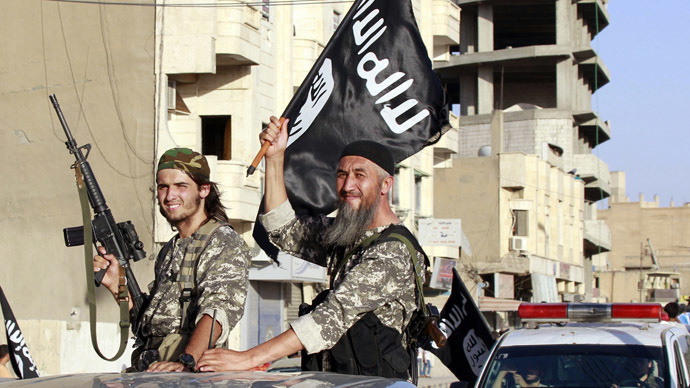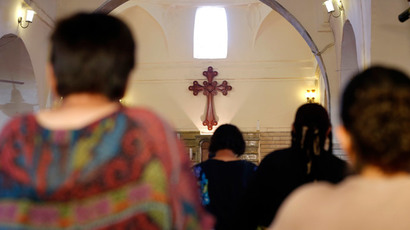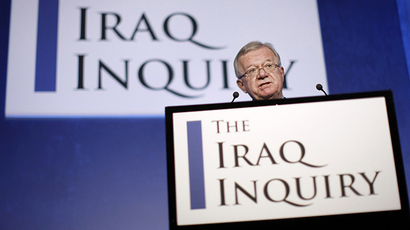ISIS ‘making millions’ out of stolen oil revenues in Iraq

ISIS militants are using the revenue from seized oil fields to finance their newly-formed Islamic state in northern Iraq. Sources within the regional government say the extremist militants are “making millions” in illegal trade.
Follow RT's LIVE UPDATES on the ISIS advances in Iraq
Sunni militants from the Islamic State of Iraq and the Levant (ISIS) in northern Iraq are cementing their hold on the region by selling crude oil and gasoline from oil fields they have seized. Iraqi officials have confirmed to Reuters that ISIS militants have been transporting crude oil from inside Iraq into neighboring Syria.
“We have confirmed reports showing that the Islamic State is shipping crude from Najma oilfield in Mosul into Syria to smuggle it to one of Syria's neighbors,” said Husham al-Brefkani, head of Mosul provincial council's energy committee. “The Islamic State is making multi-million dollar profits from this illegal trade.”
The oil is processed into low quality gasoil and gasoline in
Syria and then smuggled back into the city of Mosul in Iraq.
The fuel is handed over to traders who charge at least triple the
price at $1 or $1.5 a liter.
"The fuel is brought from Syria ... It’s triple the price before, but drivers have to buy it because subsidized government fuel was halted," said al-Brefkani.
ISIS currently controls the oilfields Najma and Qayara near the northern city of Mosul and another two - Himreen and Ajil - close to the hometown of Saddam Hussein, Tikrit.
The militants seized control of the fields during their mid-June onslaught through the North of Iraq and have kept them intact and in working order. The militants also promised the workers protection if they stayed on at the plant in order to maintain production.
Oil revenues are not the only source of finance for the nascent Islamic state. The militants have implemented a system of taxes and levies for vehicles carrying goods into the city on Mosul. A large truck is required to pay $400, while smaller ones are charged $100 for crossing into the militant-controlled city.
ISIS has gained significant ground in both Syria and Iraq after its initial assault on the city of Mosul in mid-June. The group has since declared the creation of an Islamic state, or caliphate straddling the Iraq-Syria border and continues to advance towards the Iraqi capital of Baghdad.
Government security forces have proved to be of little use in stemming the onslaught of the well-armed militant group. ISIS has demanded that Shia Prime Minister Nouri al-Maliki step down from office as they threaten to attack the Iraqi capital city.














